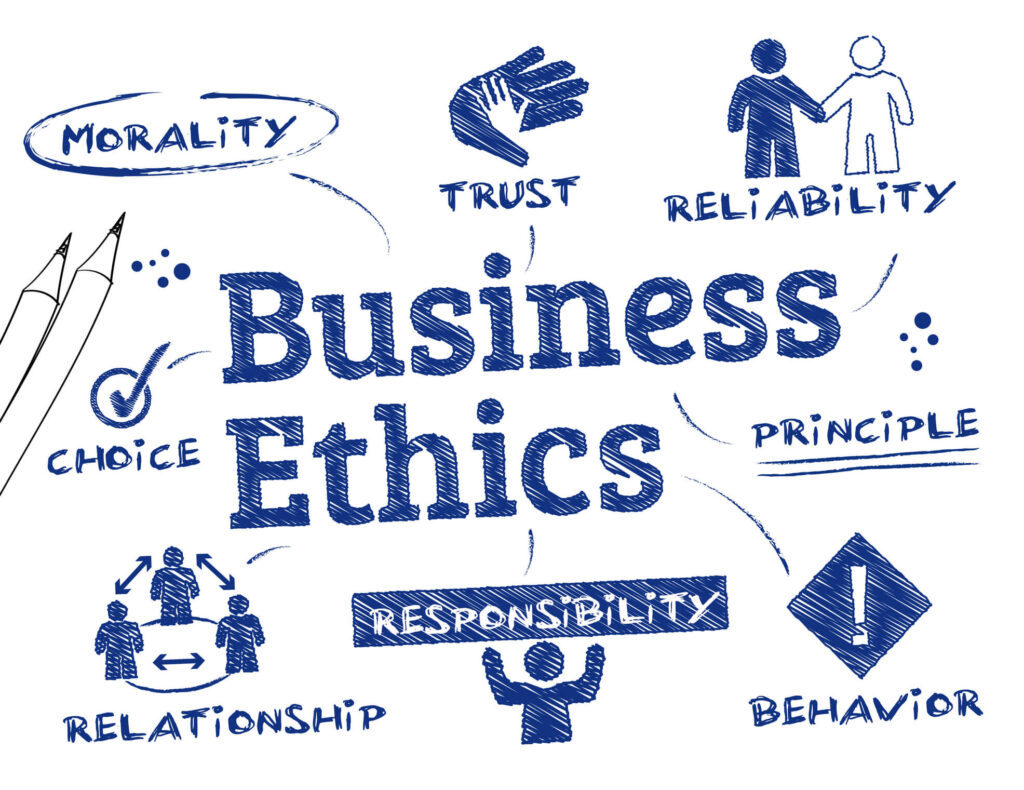The foundation of any successful business lies in its adherence to ethical principles. Business ethics not only serve as a moral compass but also play a pivotal role in building trust with customers, stakeholders, and the wider community.
In this article, we will explore the importance of business ethics and how they contribute to sustainable success. Let’s delve into the various aspects of business ethics that are critical for maintaining integrity and ensuring long-term growth.
Defining Business Ethics
A Framework for Ethical Decision-Making Business ethics provides a framework that guides organizations in making ethical decisions. By establishing a set of values, standards, and principles, businesses can navigate complex situations and resolve moral dilemmas.
The consistent application of businessethics ensures that decisions align with ethical standards, benefiting not only the company but also society as a whole.
Fostering Trust and Reputation through Ethical Practices / Business Ethics
Ethical behavior in business fosters trust among customers, suppliers, and stakeholders. When companies demonstrate a commitment to honesty, fairness, and transparency, they build a positive reputation.
This reputation, built on ethical practices, strengthens relationships and cultivates loyalty. By prioritizing businessethics, organizations can differentiate themselves in the marketplace and attract like-minded partners and customers.
Compliance with Legal and Regulatory Requirements
Integrating business ethics into corporate practices goes hand in hand with complying with legal and regulatory requirements.
Ethical conduct ensures that organizations operate within the boundaries of the law, avoiding legal complications and potential reputational damage.
By proactively embracing ethical standards, businesses can safeguard themselves against legal pitfalls while creating a culture of responsibility and accountability.
Enhancing Employee Morale and Engagement
BusinessEthics significantly impact employee morale and engagement. When employees perceive that their organization operates ethically, they feel proud to be part of the company.
Ethical practices create a positive work environment, fostering trust, teamwork, and employee satisfaction. As a result, engaged and motivated employees are more likely to go the extra mile, leading to increased productivity and innovation.
Sustainability and Corporate Social Responsibility
Business ethics are closely intertwined with sustainability and corporate social responsibility (CSR). Ethical organizations consider the impact of their actions on the environment, society, and future generations.
By adopting sustainable practices, such as reducing carbon footprint or promoting fair trade, businesses demonstrate their commitment to a better world. Embracing CSR initiatives not only benefits society but also enhances brand reputation and attracts socially conscious customers.
Dealing with Ethical Challenges and Dilemmas
In the dynamic business landscape, ethical challenges and dilemmas are inevitable. Companies must develop robust mechanisms to address these situations effectively.
Establishing a clear code of ethics, providing ethical training, and fostering open communication channels enable employees to navigate ethical gray areas confidently.
By promoting a culture that encourages ethical discussions, organizations can proactively tackle ethical challenges and make sound decisions.
Conclusion Business Ethics
Business ethics are the cornerstone of sustainable success and enduring growth. By integrating ethical practices into every aspect of their operations, organizations can build trust, enhance reputation, comply with legal requirements, engage employees, and contribute to a better society.
Embracing businessethics is not only the right thing to do but also a strategic move that cultivates long-term success. Let us strive to prioritize business ethics, fostering a business environment that values integrity, responsibility, and sustainable growth.

